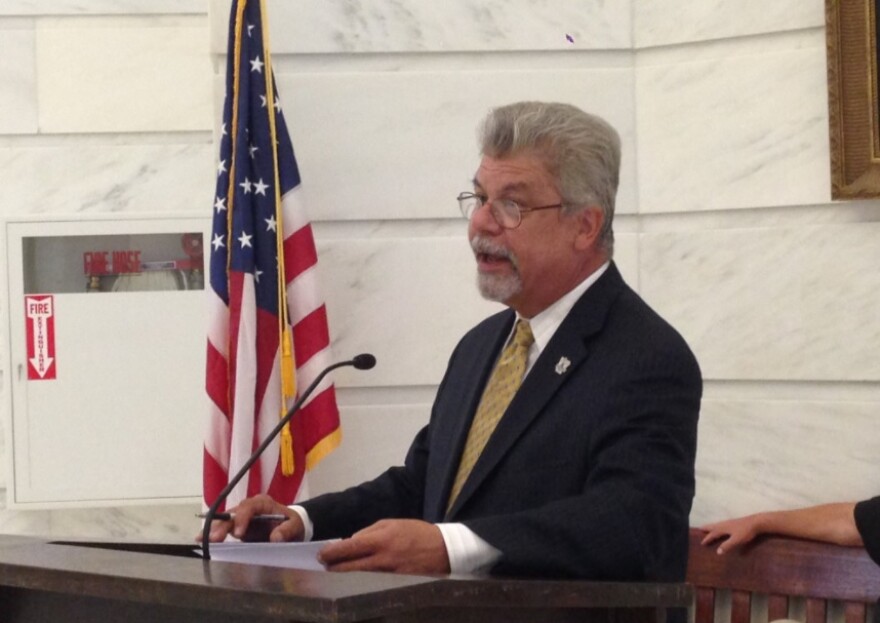The Libertarian Party of Arkansas submitted over 15,000 signatures on Monday to the Secretary of State’s office to try and qualify to be a new political party -- for the fourth election cycle in a row. The state has 30 days to certify at least 10,000 of the signatures are from registered Arkansas voters.
This initial hurdle, and the financial cost of signature drives, is often critiqued by Arkansas third parties. In order for a political party to retain Arkansas ballot access through the next election cycle a candidate for either governor or president has to garner at least three percent of the vote. Last year Libertarian nominee Gary Johnson fell just shy with 2.63 percent of the vote.
Despite falling short of that threshold in 2016, state Party Chair Michael Pakko said the Libertarian Party deserves to be thought of as competitive.
“Last year the Libertarian Party was the only party to field candidates against incumbents in all four U.S. Congressional states. In state legislative races Libertarians provided the only opposition in nearly a third of all contested races,” Pakko said at the Capitol, “Moreover people are choosing to vote Libertarian. Across the four Congressional districts last year our candidates earned over 196,000 votes about 18.5 percent of the total.”
The once all-powerful Democratic Party of Arkansas only fielded one Congressional candidate in the last election. But this year, bolstered by an impassioned base in the era of Trump, a growing number of Democrats are expressing interest in 2018 races.
Pakko said he expects Libertarians to be in more three-way races next election.
“It’s always nice to be the only opposition party. When the Democrats weren’t running in races last year that gave us a little bit bigger piece of the spotlight but we don’t expect that to be the case,” Pakko said, “so we’ll just take it as it comes.”
No Arkansas Libertarians hold legislative, statewide, or federal offices. But that lack of experience isn’t necessarily a negative to Pakko.
“One of the things voters communicated in their election of Donald Trump was their willingness to pick someone for public office that didn’t have previous experience,” he said.
“While certainly having experienced candidates would be helpful I don’t think that’s necessarily a handicap to have non-professional politicians, regular citizens running for office and I think voters will be receptive,” said Pakko.
What matters most to voters, according to the Libertarian chair, is making government work.
“The biggest issue that voters think about is the dysfunctional nature of government both at the state and national level,” he said. “It’s a matter of the two political parties at loggerheads, constant gridlock, and we’d like the voters in Arkansas to know there is another choice, another option.”
For Pakko and most Libertarians making government work often means passing laws that peel back the role of government, “If you believe that governments should protect the rights of the individual, that people should be able to live their lives however they see fit with minimal interference from the government, if you believe that freedom and prosperity flourish where markets are allowed to work and the U.S. is at peace with its neighbors in the world, then please consider joining the Libertarian Party.”








